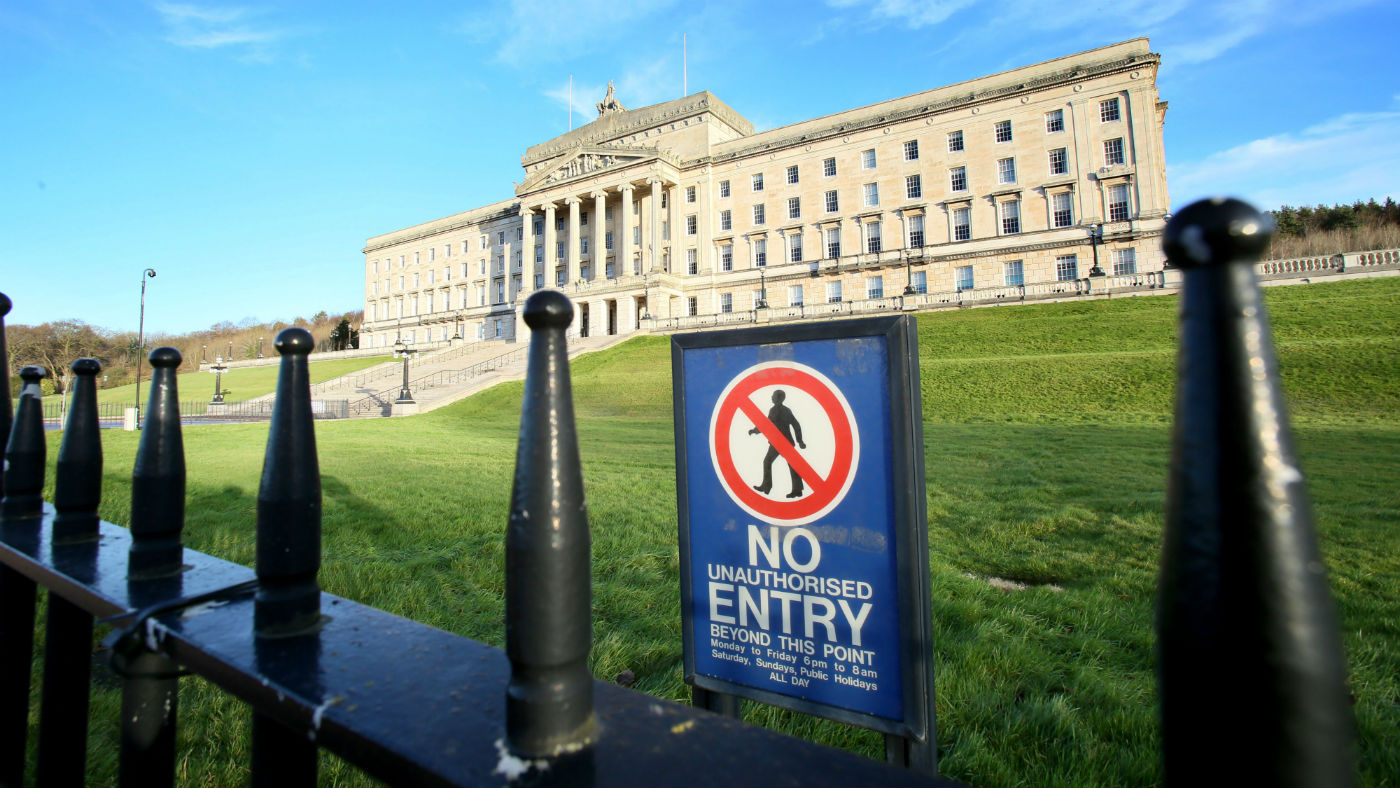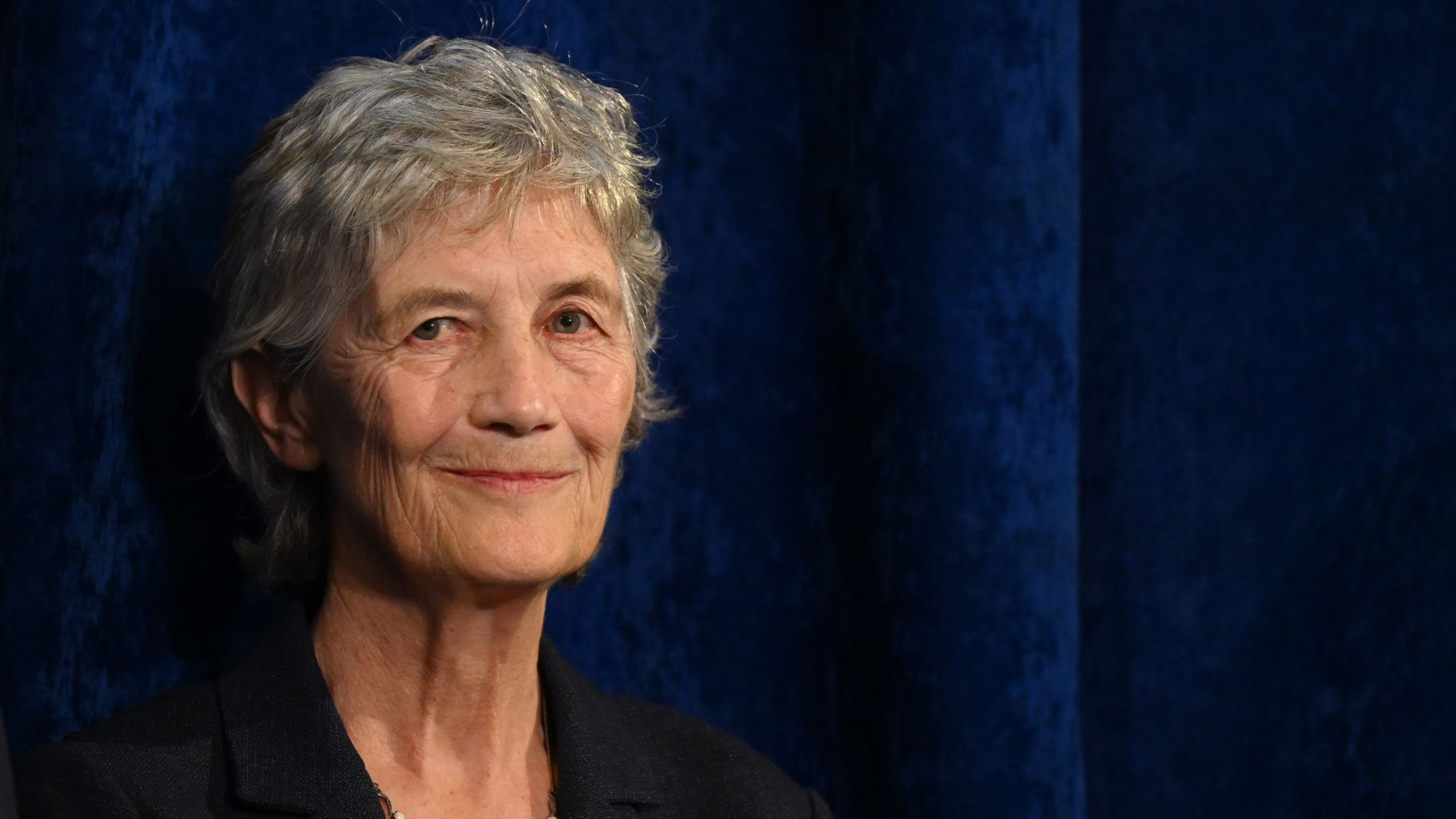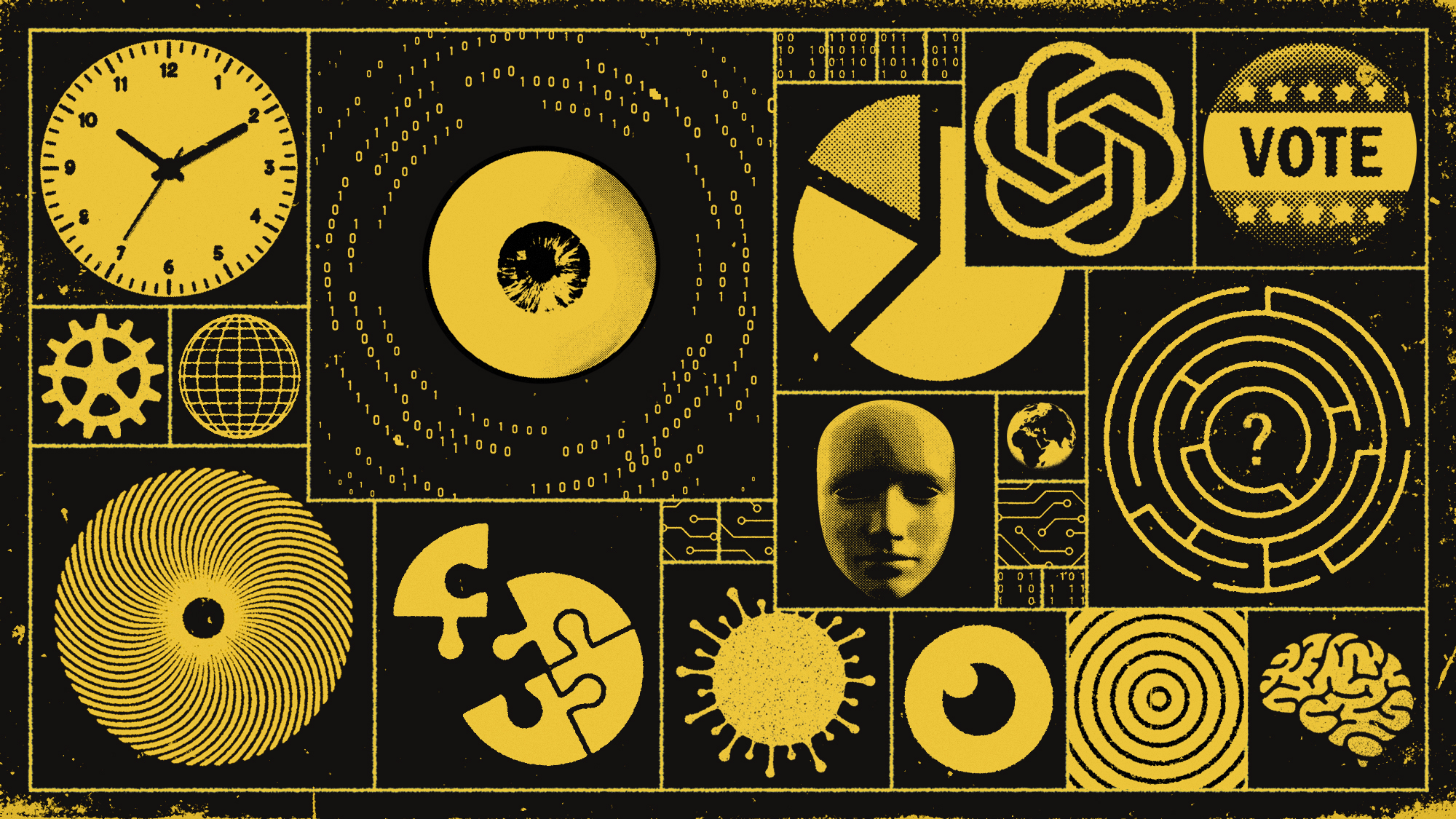What is going on at Stormont?
Unionists stage NI Assembly ‘farce’ over abortion and same-sex marriage reforms

A free daily email with the biggest news stories of the day – and the best features from TheWeek.com
You are now subscribed
Your newsletter sign-up was successful
Northern Ireland’s Stormont Assembly sat for the first time in nearly three years in a symbolic bid to block changes to its abortion and same-sex marriage laws.
Critics have described the sitting as a “farce” and a “cynical political stunt”.
So what is going on?
The Week
Escape your echo chamber. Get the facts behind the news, plus analysis from multiple perspectives.

Sign up for The Week's Free Newsletters
From our morning news briefing to a weekly Good News Newsletter, get the best of The Week delivered directly to your inbox.
From our morning news briefing to a weekly Good News Newsletter, get the best of The Week delivered directly to your inbox.
Why is Stormont in stalemate?
Under the power-sharing deal agreed in the Good Friday Agreement, the executive is controlled by both the main unionist party, which is the Democratic Unionist Party (DUP), and the main nationalist party, Sinn Fein.
Having secured the larger mandate at the last election, the DUP was given the post of first minister, while Sinn Fein got deputy first minister, but the two roles “are effectively a joint office, with equal power, and can only exist with the full support of the other”, says The Independent.
The newspaper adds that this arrangement “largely weathered a decade of politics”, but in November 2016, the so-called “cash for ash scandal” saw Sinn Fein leader Martin McGuinness resign as deputy first minister and the power-sharing agreement collapse.
A free daily email with the biggest news stories of the day – and the best features from TheWeek.com
There have been a series of talks aimed at restoring the executive but all have failed and the main chamber remains mothballed.
Why are they sitting today?
With no executive in Northern Ireland, MPs in the House of Commons in Westminster have passed some key legislation for the province. This included the decriminalisation of abortion and same-sex marriage, due to be implemented next year, unless the devolved government is restored by midnight on 21 October.
“Unionist parties, who oppose the upcoming liberalisation, triggered the recall with a petition,” says the BBC.
However, Sinn Fein refused to turn up. The Alliance Party also boycotted the meeting, with its leader Naomi Long telling RTE News that “nothing has changed” to restore power to the executive and therefore the sitting was a “farce” and a “cynical political stunt”.
What happened in the end?
Members of the Legislative Assembly (MLAs) from the Social Democratic and Labour Party (SDLP) who turned up today promptly walked out again. Leader Colum Eastwood said his party would not participate in the “stunt any longer”.
With no nationalists remaining, a speaker could not be elected and the power-sharing executive could not operate, meaning the session lasted less than an hour.
The DUP said it was not the end of the matter.
But without an executive of unionists and nationalists, “nothing can be stopped”, says Tim Stanley in The Telegraph. “The DUP will be hoist by its own petard: the United Kingdom that the DUP loves is about to force their community to become more like the rest of the country,” he says.
-
 James Van Der Beek obituary: fresh-faced Dawson’s Creek star
James Van Der Beek obituary: fresh-faced Dawson’s Creek starIn The Spotlight Van Der Beek fronted one of the most successful teen dramas of the 90s – but his Dawson fame proved a double-edged sword
-
 Is Andrew’s arrest the end for the monarchy?
Is Andrew’s arrest the end for the monarchy?Today's Big Question The King has distanced the Royal Family from his disgraced brother but a ‘fit of revolutionary disgust’ could still wipe them out
-
 Quiz of The Week: 14 – 20 February
Quiz of The Week: 14 – 20 FebruaryQuiz Have you been paying attention to The Week’s news?
-
 How corrupt is the UK?
How corrupt is the UK?The Explainer Decline in standards ‘risks becoming a defining feature of our political culture’ as Britain falls to lowest ever score on global index
-
 The high street: Britain’s next political battleground?
The high street: Britain’s next political battleground?In the Spotlight Mass closure of shops and influx of organised crime are fuelling voter anger, and offer an opening for Reform UK
-
 Biggest political break-ups and make-ups of 2025
Biggest political break-ups and make-ups of 2025The Explainer From Trump and Musk to the UK and the EU, Christmas wouldn’t be Christmas without a round-up of the year’s relationship drama
-
 ‘The menu’s other highlights smack of the surreal’
‘The menu’s other highlights smack of the surreal’Instant Opinion Opinion, comment and editorials of the day
-
 Is a Reform-Tory pact becoming more likely?
Is a Reform-Tory pact becoming more likely?Today’s Big Question Nigel Farage’s party is ahead in the polls but still falls well short of a Commons majority, while Conservatives are still losing MPs to Reform
-
 Meet Ireland’s new socialist president
Meet Ireland’s new socialist presidentIn the Spotlight Landslide victory of former barrister and ‘outsider’ Catherine Connolly could ‘mark a turning point’ in anti-establishment politics
-
 Believe it when AI see it: is this a deepfake turning point in politics?
Believe it when AI see it: is this a deepfake turning point in politics?Today’s Big Question AI ‘slopaganda’ is becoming a ‘feature’ of modern elections
-
 Taking the low road: why the SNP is still standing strong
Taking the low road: why the SNP is still standing strongTalking Point Party is on track for a fifth consecutive victory in May’s Holyrood election, despite controversies and plummeting support